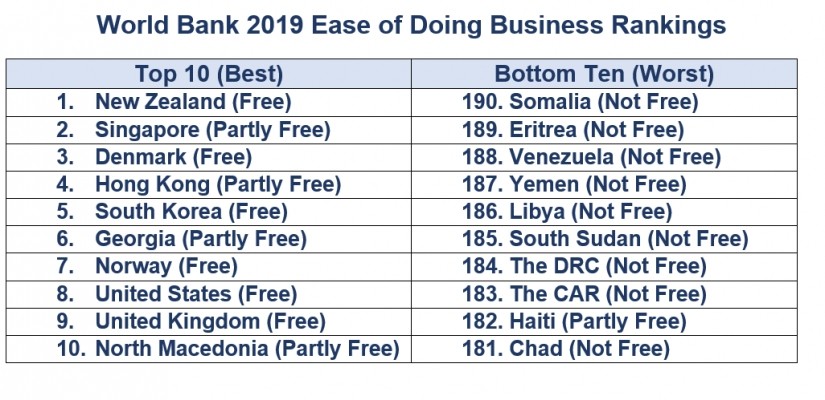
The continued presence of authoritarian leaders is a trend that has persisted despite the efforts of more democratic countries to encourage the adoption of representative governance. Going into 2020, authoritarian leaders control some of the world’s most powerful and influential countries and continue to thrive around the globe. Despite the seemingly growing popularity of authoritarian leadership and the nationalist movements that help usher some of these leaders into power, it is necessary to be aware of the risks posed by this brand of leadership. Authoritarian rule is typically associated with the backsliding of democratic principles and institutions. The lack of accountability on authoritarian leaders facilitates a system of governance that can have dire consequences for a country’s political and economic condition.
The world is host to many countries that are governed by varying degrees of autocratic rulers, with some more oppressive than others. Generally speaking, authoritarianism is a form of government in which power is centralized around a single figure and political freedoms are limited for the general population. The head of state has little to no opposition, and the rule of law shifts according to the needs of the government. Moreover, authoritarian rule is associated with the suppression of human rights, persecution of minority groups, surveillance over the general population, censorship of the media, and state control over resources.
Authoritarianism and Economic Adversity
The presence of authoritarian leaders should not be disregarded as it can produce volatile investment conditions. In an authoritarian regime, the government has greater control over the market, often nationalizing and exporting the country’s assets. Examples of this would include Venezuela’s nationalized oil industry or the Russian government’s control over natural gas. One critical side-effect with greater government control over the market is that economic benefits can be limited to those linked with the government.
There is evidence to show that authoritarianism fosters limited economic growth compared to democracies. The strong correlation between more democratic governance and reliable investment conditions supports this notion. According to the World Bank’s 2019 Ease of Doing Business Rankings, the ten countries with the greatest ease of doing business are New Zealand, Singapore, Denmark, Hong Kong, South Korea, Georgia, Norway, the United States, the United Kingdom, and North Macedonia. Of these ten, six are considered free democracies, and the other four are considered partly-free. In contrast, the same World Bank rankings list the ten countries with the greatest difficulty of doing business as Somalia, Eritrea, Venezuela, Yemen, Libya, South Sudan, the Democratic Republic of the Congo (DRC), the Central African Republic (CAR), Haiti, and Chad. Of these ten, only one is considered a partly free democracy. The rest are not considered free democracies.

There is reason to believe that this correlation exists because democratic governance allows for long-term political stability and corrective mechanisms that create a foundation for safe investment and continued growth. Furthermore, stable and transparent governments based upon the rule of law routinely promote environments that are conducive to the establishment and unhindered operation of private enterprises. Conversely, political crackdowns and security crises associated with authoritarian rule tend to drive out business and place employees, supply chains, and investments at risk. Foreign companies that remain involved in such environments risk suffering from reputational and legal challenges.
One notable exception to this general trend is China, considering its growing power on the global stage. China is, however, engaged in a trade war with the United States and its lack of checks and balances renders it susceptible to political unrest, as we have seen in the case of Hong Kong. While not all countries under authoritarian rule are considered disadvantageous to businesses, the correlation between democratic governance and strong functioning economies should be taken into consideration when planning investment strategies.
With control over the market, an authoritarian government can exploit international corporations operating within its borders. For example, China has forced US tech companies to physically store their data on servers within China and request government permission to transfer this data outside of the country. Additionally, tech companies can be required to purchase government-approved encryption and virtual private networks (VPNs), raising serious cybersecurity concerns for both the companies and their customers.
Authoritarian rule is also associated with economic protectionism and a decline in multilateralism. Just as democracies cooperate to achieve economic benefits, authoritarian governments are traditionally supported by countries of a similar political nature. Examples include Russia and Iran’s support of Bashar al Assad in Syria, Russia’s support of Nicholas Maduro in Venezuela, or China’s support of Kim Jong-un in North Korea. Authoritarian regimes do, however, tend to be more isolationist in nature, which creates an additional set of risk factors.
Authoritarian leadership also elicits several social considerations such as the stifling of innovation, limitations to social mobility, and incitement of rebellion. Authoritarian rule has a tendency to stifle innovation through the suppression of free expression and creativity. This suppression can limit the advancement of science and technology, subsequently restricting economic growth. Furthermore, the suppression and constraints placed on the public can result in minimal social mobility, as such mobility is generally restricted to those connected with the ruling government. Authoritarian rule can thus lead to a “brain drain,” meaning that more educated individuals will leave in search of better opportunities in other countries. For those that remain, the suppression of liberties can spark rebellion and political unrest. Cases of such unrest were abundant in 2019.
Ultimately authoritarian leadership will remain a top global risk in 2020 due to the many economic and social consequences that this type of governance is associated with. While some exceptions exist, countries with authoritarian rulers are generally more prone to political unrest, limited economic growth, and volatile investment conditions, and should thus be monitored closely and approached with caution.
